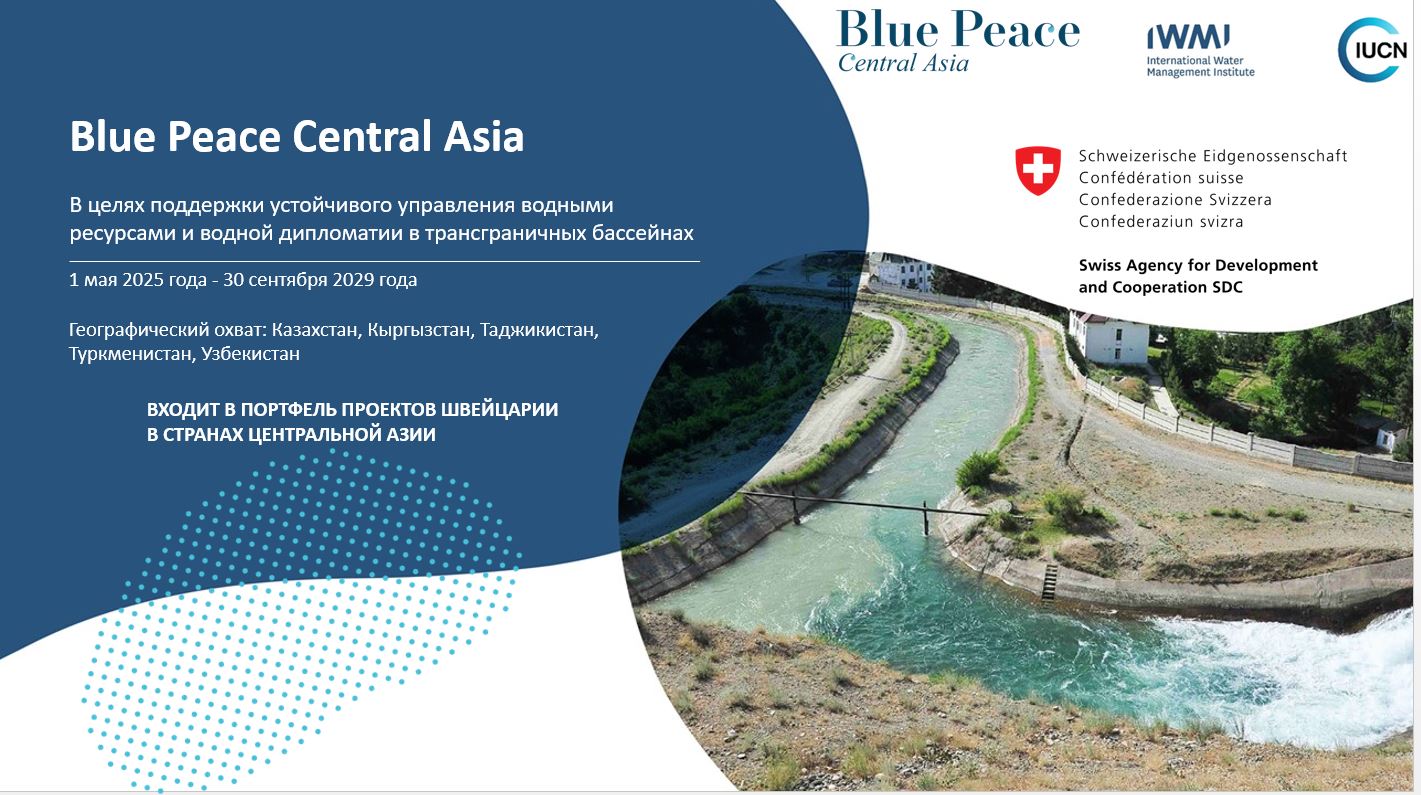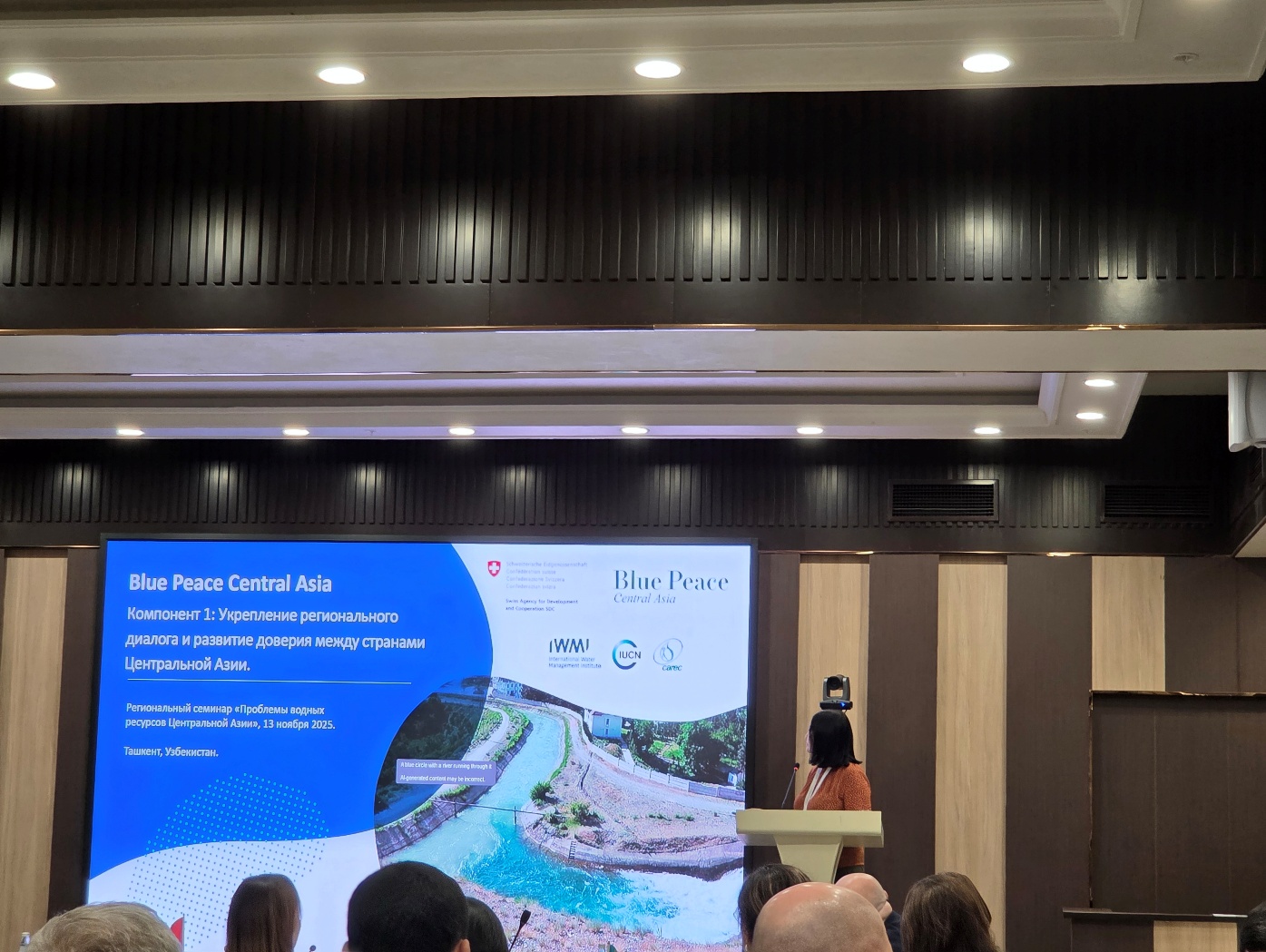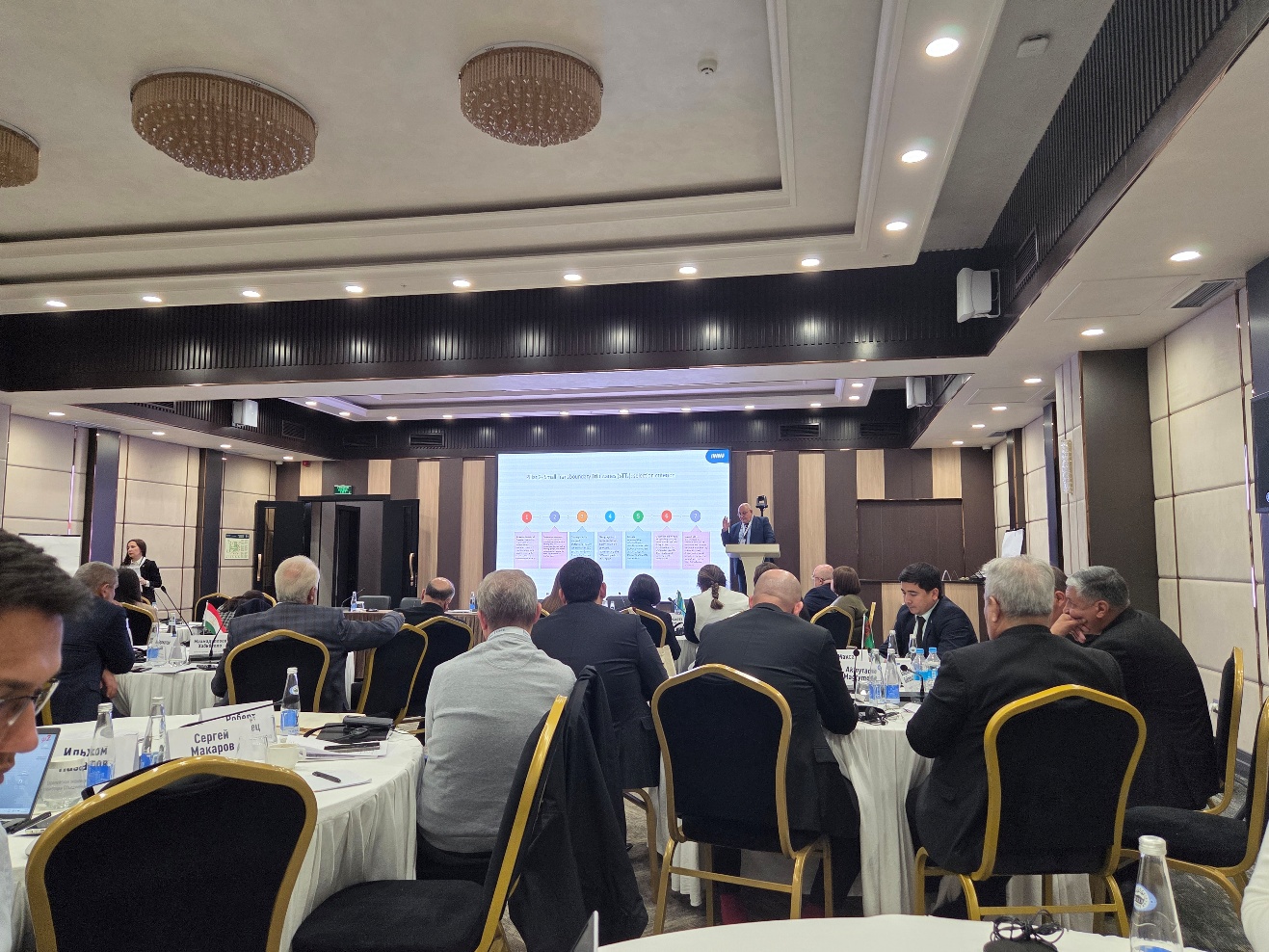No. 114 (638) November 2025
Regional Workshop of the Blue Peace Central Asia Initiative
On 13 November 2025, the regional workshop “Water Challenges in Central Asia” was held in Tashkent as part of the Regional Steering Committee of the Blue Peace Central Asia (BPCA). The event was organized by the International Water Management Institute (IWMI) with the support of the Swiss Agency for Development and Cooperation (SDC). The seminar brought together representatives of water management agencies from Central Asian countries, as well as experts from international and regional organizations, research centers, and universities. Participants discussed key water challenges facing the region, potential solutions, and priorities for further joint action.

The workshop’s objectives were to develop a shared vision of the region’s medium- and long-term water challenges, explore opportunities for climate adaptation, agree on the BPCA Work Plan for 2025–2026, and enhance regional coordination and engagement of the Central Asian states.
In their opening remarks, representatives of BPCA and SDC stressed the importance of improving data quality and transparency in the water sector, strengthening scientific cooperation, promoting innovation and knowledge sharing, and developing qualified human resources. Several major water-related challenges in the region were highlighted. Those included chronic underfunding of the sector, lack of data and coordination among research organizations. A shift from joint resource management to benefit sharing was proposed.
Three core components of the BPCA Initiative were presented: water diplomacy, small transboundary tributaries, and capacity building. A key principle of BPCA is to build on existing regional processes rather than create parallel structures. Accordingly, the initiative will support current working groups, including efforts on environmental flow assessments integrated into the regional water and energy working group. Under the water diplomacy component, BPCA plans to promote the exchange of water-saving and water-accounting technologies, facilitate the participation of Central Asian countries in international forums—including the Dushanbe Conference—and foster the development of a shared regional vision for water and climate.
The second component focuses on small transboundary basins. Two pilot basins will be selected where basin management and investment plans will be developed—addressing a gap that often hinders meaningful reform. Local water management organizations will prepare these documents to strengthen local expertise and ensure long-term sustainability.
The third component centers on capacity building, with a flagship activity aimed at establishing a regional master’s program on water diplomacy. A draft of the program is expected to be presented by the end of next year. This component also includes initiatives to enhance the participation of women and youth, foster cooperation among universities and research centers, and support scientific projects in the field of WASH.

Z. Yarullina and O. Usmanova represented SIC ICWC in the workshop. Participation in the workshop helped reinforce the understanding that Central Asian countries share common perspectives on current water challenges, provided updated insights on the BPCA Initiative, strengthened professional contacts, and highlighted opportunities for cooperation.

Reference: The Blue Peace Central Asia (BPCA) 2025–2029, implemented with the support of the Swiss Agency for Development and Cooperation, offers a regional platform aimed at transforming water from a potential source of tension into a driver of cooperation, trust, and sustainable development. The initiative is implemented by IWMI and IUCN in partnership with CAREC.